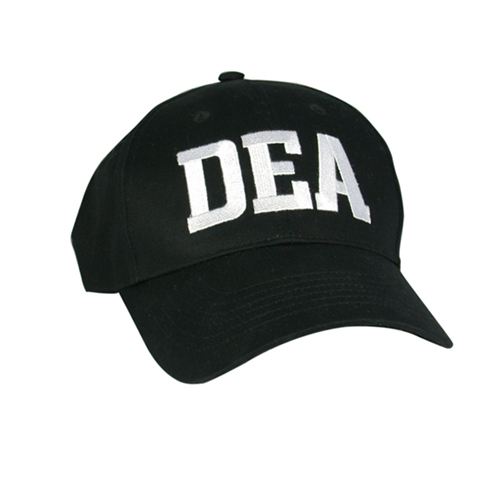And yet another high ranking government official - once unshackled from the punitive punishments that could come his way if he speaks honestly while in office - comes out and admits that 21st century Prohibition is a counterproductive and destructive social policy.
From yesterday's edition of The Guardian in London, with colored emphasis added by Barman
=====
UK: Ex-Drugs Policy Director Calls For Legalisation
URL: http://www.mapinc.org/drugnews/v08.n784.a03.html
Newshawk: JimmyG
 Votes: 0
Votes: 0
Pubdate: Wed, 13 Aug 2008
Source: Guardian, The (UK)
Copyright: 2008 Guardian Newspapers Limited
Contact: <script>male2('letters','guardian.co.uk');</script>letters@guardian.co.uk
Website: http://www.guardian.co.uk/guardian/
Details: http://www.mapinc.org/media/175
Author: Duncan Campbell, The Guardian
Bookmark: http://www.mapinc.org/decrim.htm (Decrim/Legalization)
EX-DRUGS POLICY DIRECTOR CALLS FOR LEGALISATION
A former senior civil servant who was responsible for coordinating the government's anti-drugs policy now believes that legalisation would be less harmful than the current strategy. Julian Critchley, the former director of the Cabinet Office's anti-drugs unit, also said that his views were shared by the "overwhelming majority" of professionals in the field, including police officers, health workers and members of the government.
He also claimed that New Labour's policy on drugs was based on what was thought would play well with the Daily Mail readership, regardless of evidence of what worked. Downing Street policy advisers were said to have suggested stunts such as sending boats down the Thames to catch smugglers to coincide with policy announcements.
Critchley - not be to be confused with the late Tory MP of the same name - was director of the UK Anti-Drug Coordination Unit in the Cabinet Office, with the job of coordinating government policy across departments and supporting the then drugs Tsar, Keith Hellawell. In a contribution to the debate on the "war on drugs" on a BBC website, Critchley spelled out his reasons for now supporting legalisation and claimed the government's position is hypocritical. Yesterday Critchley, who is now a teacher, confirmed that the blog posting accurately conveyed his views.
"I joined the unit more or less agnostic on drugs policy, being personally opposed to drug use, but open-minded about the best way to deal with the problem," he wrote on the blog. "I was certainly not inclined to decriminalise. However, during my time in the unit, as I saw more and more evidence of 'what works', to quote New Labour's mantra of the time, it became apparent to me that ... enforcement and supply-side interventions were largely pointless. They have no significant, lasting impact on the availability, affordability or use of drugs."
He said that his views were widely held in the government but rarely expressed in public. "I think what was truly depressing about my time in UKADCU was that the overwhelming majority of professionals I met, including those from the police, the health service, the government and voluntary sectors held the same view: the illegality of drugs causes far more problems for society and the individual than it solves. Yet publicly, all those intelligent, knowledgeable people were forced to repeat the nonsensical mantra that the government would be 'tough on drugs', even though they all knew the government's policy was actually causing harm."
Critchley believed that the benefits to society of the fall in crime as a result of legalisation would be dramatic. "Tobacco is a legal drug, whose use is declining, and precisely because it is legal, its users are far more amenable to government control, education programmes and taxation." Anyone who wished to purchase the drug of their choice could already do so. "The idea that many people are holding back solely because of a law which they know is already unenforceable is simply ridiculous."
His intervention was welcomed yesterday by drugs law reformers. "Julian Critchley is one of the brave few to tell the truth about the failure of prohibition and the need to replace it with a system of regulation," said Danny Kushlick, of the Transform Drug Policy Foundation. "It is truly shameful that there are so many more who know that the war on drugs is overwhelmingly counterproductive, and yet continue to remain silent, tacitly endorsing a policy that they know creates misery, degradation and death for millions across the globe."
<hr noshade="noshade"> [SIZE=-1]MAP posted-by: Steve Heath[/SIZE]
From yesterday's edition of The Guardian in London, with colored emphasis added by Barman
=====
UK: Ex-Drugs Policy Director Calls For Legalisation
URL: http://www.mapinc.org/drugnews/v08.n784.a03.html
Newshawk: JimmyG
 Votes: 0
Votes: 0Pubdate: Wed, 13 Aug 2008
Source: Guardian, The (UK)
Copyright: 2008 Guardian Newspapers Limited
Contact: <script>male2('letters','guardian.co.uk');</script>letters@guardian.co.uk
Website: http://www.guardian.co.uk/guardian/
Details: http://www.mapinc.org/media/175
Author: Duncan Campbell, The Guardian
Bookmark: http://www.mapinc.org/decrim.htm (Decrim/Legalization)
EX-DRUGS POLICY DIRECTOR CALLS FOR LEGALISATION
A former senior civil servant who was responsible for coordinating the government's anti-drugs policy now believes that legalisation would be less harmful than the current strategy. Julian Critchley, the former director of the Cabinet Office's anti-drugs unit, also said that his views were shared by the "overwhelming majority" of professionals in the field, including police officers, health workers and members of the government.
He also claimed that New Labour's policy on drugs was based on what was thought would play well with the Daily Mail readership, regardless of evidence of what worked. Downing Street policy advisers were said to have suggested stunts such as sending boats down the Thames to catch smugglers to coincide with policy announcements.
Critchley - not be to be confused with the late Tory MP of the same name - was director of the UK Anti-Drug Coordination Unit in the Cabinet Office, with the job of coordinating government policy across departments and supporting the then drugs Tsar, Keith Hellawell. In a contribution to the debate on the "war on drugs" on a BBC website, Critchley spelled out his reasons for now supporting legalisation and claimed the government's position is hypocritical. Yesterday Critchley, who is now a teacher, confirmed that the blog posting accurately conveyed his views.
"I joined the unit more or less agnostic on drugs policy, being personally opposed to drug use, but open-minded about the best way to deal with the problem," he wrote on the blog. "I was certainly not inclined to decriminalise. However, during my time in the unit, as I saw more and more evidence of 'what works', to quote New Labour's mantra of the time, it became apparent to me that ... enforcement and supply-side interventions were largely pointless. They have no significant, lasting impact on the availability, affordability or use of drugs."
He said that his views were widely held in the government but rarely expressed in public. "I think what was truly depressing about my time in UKADCU was that the overwhelming majority of professionals I met, including those from the police, the health service, the government and voluntary sectors held the same view: the illegality of drugs causes far more problems for society and the individual than it solves. Yet publicly, all those intelligent, knowledgeable people were forced to repeat the nonsensical mantra that the government would be 'tough on drugs', even though they all knew the government's policy was actually causing harm."
Critchley believed that the benefits to society of the fall in crime as a result of legalisation would be dramatic. "Tobacco is a legal drug, whose use is declining, and precisely because it is legal, its users are far more amenable to government control, education programmes and taxation." Anyone who wished to purchase the drug of their choice could already do so. "The idea that many people are holding back solely because of a law which they know is already unenforceable is simply ridiculous."
His intervention was welcomed yesterday by drugs law reformers. "Julian Critchley is one of the brave few to tell the truth about the failure of prohibition and the need to replace it with a system of regulation," said Danny Kushlick, of the Transform Drug Policy Foundation. "It is truly shameful that there are so many more who know that the war on drugs is overwhelmingly counterproductive, and yet continue to remain silent, tacitly endorsing a policy that they know creates misery, degradation and death for millions across the globe."
<hr noshade="noshade"> [SIZE=-1]MAP posted-by: Steve Heath[/SIZE]


 uppy: :hanging:
uppy: :hanging:
 hno:
hno: 






